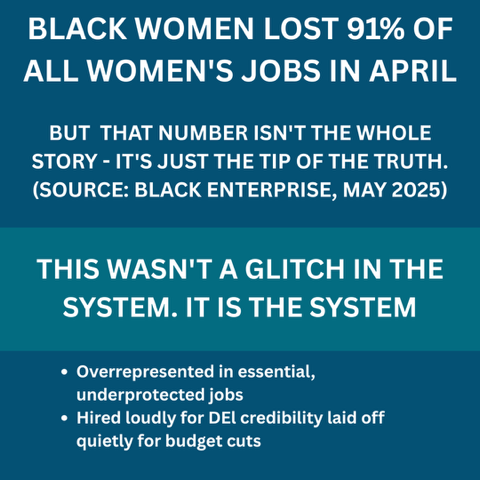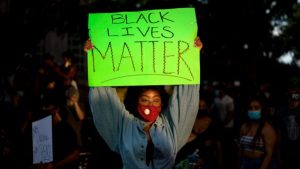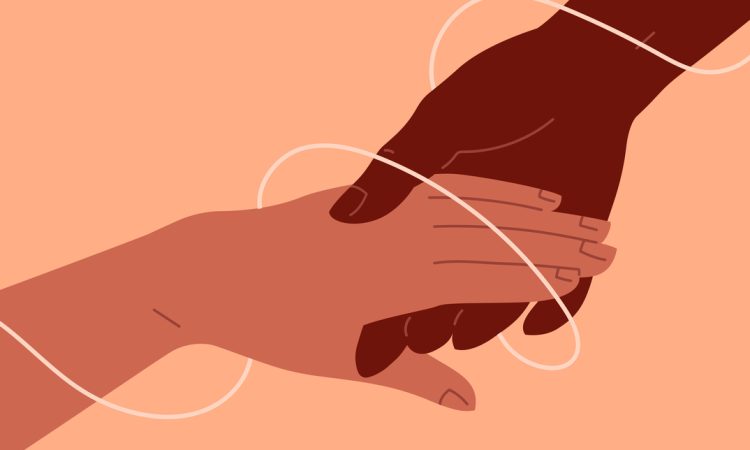|
Getting your Trinity Audio player ready...
|
Career development professionals (CDPs) wouldn’t necessarily identify themselves as philanthropists, but the work of career development represents an important investment in people, their potential and their futures. Philanthropic work is about caring for people, meeting needs and creating opportunity to manifest a better present and future.
August is Black Philanthropy Month, and it reminds us that CDPs have an important role in supporting Black communities through the work of career development, which contributes to the safety, well-being and advancement of Black people.
This Black Philanthropy Month I’m asking – “Do Black lives really matter?” The answer seems self-evident, yet is it truly?
Only our actions reveal the truth.
“We are, Black people, here and there, victims of the West – a people held just outside its liberal declarations, but kept close enough to be enchanted with its promises. We know the beauty of this house its limestone steps, its wainscoting, its marble baths. But more, we know that the house is haunted, that there is blood in the bricks and ghosts in the attic. We know that there is both tragedy and comedy in this condition. Our own lives and culture our music, our dance, our writing were all crafted in this absurd space beyond the walls of ‘civilization.’ This is our collective power.” – Ta-Nahisi Coates, The Message
In May, I wrote about the increasing number of Black people I know in the charitable sector, primarily women, who have been and are being dehumanized and discarded from their organizations by DEI turncoats. These defecting “leaders” are abandoning the “white performance of solidarity” for racist decisions disguised as everything from “downsizing” to “white fragility.” In my article, “You’re Killing Us,” I reveal a 12-4-0 statistic, representing an eight-week timeframe beginning shortly after the election of Donald Trump, unleashing a more blatant form of white supremacy. During this period, 16 Black people I know – 12 faced escalating anti-Blackness at work, 4 lost their jobs despite outstanding performance, and the “0” represented the number of humane resolutions. Sadly, since I wrote the article, the number “0” remains unchanged, but the 12 and the 4 have multiplied.

Since then, I have read articles and social posts chronicling more of these same stories, further validating the dangers that Black people, namely women face in their places of employment.
Five years ago, the widespread proliferation of black squares and solidarity statements on personal and corporate social media pages served as pseudo-racial solidarity with Black people and to signal some measure of virtue. Those individuals and companies were uninterested in the actual cost of solidarity, let alone kinship, which requires unity in action and a steadfast commitment to connection, sacrifice and courage. Each year since the brutal murder of George Floyd in 2020, I have watched the waning of lip service paid to equity, until now, where we find ourselves in a space and time when the central debate is about the exclusion of “white boys.” Although this receding appears predictable in several respects, it fundamentally lacks an understanding of history and reality. But here we are.

Increasingly, Black victimization is being played out on centre stage as the horror show of modern racial discrimination proudly rips its mask off and reveals itself. Vivid is the ugly of white supremacy culture. These inflictions of violent white domination are unmistakable. Vengeance is the oppressor’s response to the struggle for human and civil rights. Erasure of Black history is a matter of necessity because the clarity of hindsight is distinct, and so clinging to fabricated narratives becomes a central feature of the strategy. Their failure is unavoidable, but that’s usually when they shape-shift to disguise this fact.
Who are “they” you might ask? Well, simply anyone concentrating power for the exclusive benefit of those belonging to one group. Very often, they are people who have been racialized as white and believe themselves to be white, but we know white supremacy culture can live in the bodies of Black and brown people too.
So, what can we do?
We find our true victory in our collective consciousness and unity as a community of Black people and accomplices – these are our power, and we will persist in telling our stories and documenting our lives.
The answers to the question, “What can we do?” cannot be found in a commemorative month; rather, they lie in our habitual actions. However, August’s Black Philanthropy Month is a good place to begin.
Every year, I highlight, celebrate and support B3 organizations – Black-led, Black-serving and Black-focused charities and non-profits. I am the founder of the Black Canadian Fundraisers’ Collective, and we use this time to inspire giving to our Black Philanthropy Fund, which supports the higher educational aspirations of Black fundraisers and non-profit leaders in Canada. We also encourage support for the Birgit Smith Burton R.I.S.E. Fund, an annual bi-national award (Canada and the United States), that supports the professional development needs of Black fundraisers. These scholarships are two examples, among many others, of the resource mobilization happening in the Black community.
We know that B3s are severely underfunded compared to their non-Black counterparts, and the report Unfunded: Black Communities Overlooked by Canadian Philanthropy (2020) confirms this fact. Opportunities exist to choose and support B3 organizations every month, but especially during Black Philanthropy Month. This August, I encourage you all to seek out those B3s doing meaningful work in your community or region. So give, be generous. You can pick this “low-hanging fruit.” However, don’t stop there, because transformational change demands and requires much more.
Don’t talk about it, walk about it.
Beyond institutional reform, we require transformation on a personal, intimate, communal, cultural and even cellular level. This means we must pursue racial liberation in both the personal and professional, not relegating it to just one aspect of our lives. It calls us to a wholehearted and courageous activism. Ask yourself:
- How am I amplifying the voices and stories of Black people in this moment?
- What does personal support for Black people look like in my life and work?
- What risks am I taking in the pursuit of the physical, emotional and mental safety of Black people?
- Do my values include equity and justice? If so, am I wholehearted in contributing and investing my money where my values are?
Now is the time to answer and act on these powerful questions. In the Black community we say, “Don’t talk about it, walk about it.” So yes, contribute to the financial needs of your Black colleagues and acquaintances, without expectation. Use your resources to challenge and disrupt the power of the status quo. Find practical ways to invest in the lives of Black folx. To some, this may not seem like philanthropy, but trust me, it is. In the Black community, this has always been the culture of our generosity. We meet needs where we find them. That’s all.
Black philanthropy is largesse, and Black women’s philanthropy is particular. In Madam C. J. Walker’s Gospel of Giving, my friend and Brother Tyrone McKinley Freeman, writes about Black Women’s Philanthropy during the forced racial segregation of the Jim Crow Era. In the book, Tyrone sheds light on the essence of Black philanthropy, writing…
“Contrary to conventional thinking, American [Canadian] philanthropy is not rooted in Andrew Carnegie and his elite peers. It is rooted in the traditions of living and sharing that were the stuff of daily family and community life from the country’s foundations….If black women lead intersectional lives, it follows that their philanthropy will be intersectional as well-meaning not limited to one type of gift, institution, societal sector or approach. Rather, it is diverse, multifaceted, overlapping, intersectional and reflective of their embodied identities. It cannot be discerned by consulting the rules of tax donation deductibility or formal accounting procedures. It is an amalgamation, understood only through their lived experiences.”
This month, you are invited to seek out B3 organizations to financially support. Remember philanthropy is a love thang and we cannot have love without justice. Let’s strive for justice this August and keep the momentum going every month that follows.
What initiatives will you embark on this Black Philanthropy Month?




